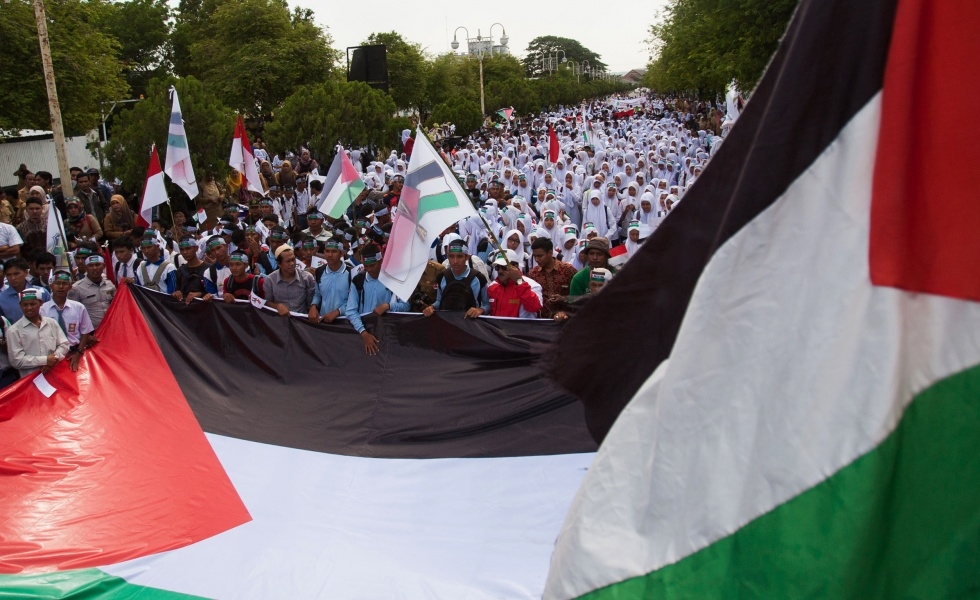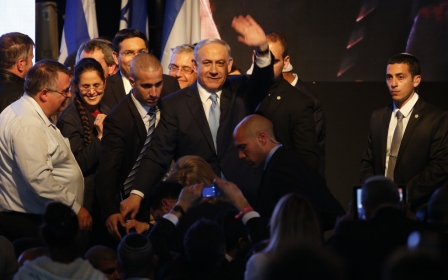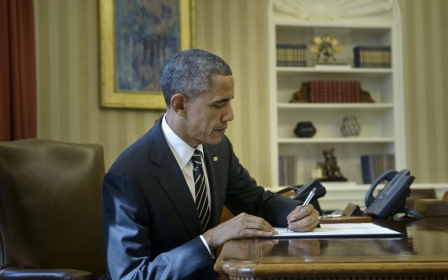Indonesia’s two faces on Israel-Palestine

Next month, the Asian-African Conference will be held in the city of Bandung in Indonesia and it will aim to create three important documents including one to reiterate support for the Palestinian cause.
This was disclosed by the Indonesian Foreign Minister Retno Marsuadi early this month as a form of support from Indonesia and other Asian-African countries towards Palestinian Independence.
Indonesia’s support for the Palestinian cause is actually not something new. Over the years, Jakarta has continuously demonstrated its condemnation against Israel’s brutal occupation of Palestine and has insisted that it would never recognise the existence of the State of Israel. In past decades, Indonesia has also provided humanitarian assistance for Palestine. More recently, it constructed a hospital in Gaza as well as offering $1 million worth of aid to the Palestinians in the aftermath of Operation Protective Edge in Gaza last summer.
Nevertheless, the earnestness of Indonesia’s stance in the Israeli-Palestinian issue must be questioned. Although the country has not established diplomatic relations with Israel, it quietly enjoys cordial relations with the Jewish State. It is reported that trade volume between the two countries has reached $400-500 million - eighty percent of which is Indonesian exports. According to Indonesia’s Ministry of Trade, in the last five years, the total trade between Jakarta and Tel Aviv has increased by 18.01%. Trading is dominated by non-oil exports such as palm oil, furniture, and agricultural technologies.
Trade partnership between the two countries appears to not be conducted in public, but rather secretly, involving third parties and sometimes other countries. For instance, it is reported that trade cooperation is carried out with the help of the Israeli Embassy in Singapore with a trade bidding process involving a third party. The most prominent third party is Indolink. This Israel-based trading broker is not only providing services on trade negotiations and transactions but also offering export-import bureaucratic solutions. Other organisations such as the Indonesia-Israel Public Affairs Committee (IIPAC) and the Israel-Indonesia Chamber of Commerce have also been established, deepening contacts among investors, businessmen, and even perhaps politicians.
The two countries began to interact with each other soon after the establishment of the Jewish State in 1948. In more recent years, the relationship between Indonesia and Israel has also expanded into different spheres including tourism and construction sectors.
This phenomenon clearly demonstrates the two faces of Indonesia in the Israeli-Palestinian issue. On the one hand, Jakarta publicly supports the Palestinian cause while on the other hand it enjoys a secret relationship with Israel.
This irony has caused many public criticisms within the country: what is the main factor behind Indonesia’s refusal of establishing diplomatic relations with Israel? Is it really because Israel’s inhumane aggressions against the Palestinians, or simply to avoid public criticisms that strongly oppose Israel’s occupation of Palestinian land?
Between economic interests and public demands
In reality, Indonesia’s secret relationship with Israel is very easy to explain. On the one hand, the government does not want to lose the trust of its people who are largely Muslims and supportive of Palestinian cause. On the other hand, it also wants to take advantage of the rapidly growing relations with Israel.
With a GDP of around 291 billion US dollars, Israel is an important attraction for Indonesian trade. It offers a way to access untapped consumer markets for its exports. At the same time, as an emerging market with a population of 250 million, Indonesia is viewed by Israel as a promising venue for boosting investments.
Perhaps this was the main factor behind the lifting of the restrictions on a trade partnership with Israel by the then Trade and Industry Minister Jusuf Kalla in 2000.
Nevertheless, even though the government in Jakarta may argue that its relations with Israel have been done primarily for the sake of economic interests, its attitude in pursuing a secret partnership with Israel is in contrary to the spirit of Asian-African countries, which also include countries of the Arab League, that are currently calling for an economic boycott towards Israel.
Furthermore, this inconsistency could also be a boomerang for Indonesia before the Asian-African conference. Indonesia’s hypocrisy could also potentially eliminate trusts of other countries concerning Indonesia’s role in the Israeli-Palestinian peace process. In the long term, if bilateral relations become more public, Indonesia is likely to face pressure from domestic Islamic groups and even the general population. Thanks to social media, Israel’s inhumane occupation of Palestine is now widely known in Indonesia.
For Israel, Indonesia is more than a just trading partner
The Indonesian government must be aware that it is not only viewed by Israel as a trading partner. As a nation struggling to gain trusts of international community for its occupation of Palestinian land, Israel’s economic interests cannot be separated from its political interests. In Tel Aviv’s view, Indonesia is not merely a country with an economic potential but also with a political weight. As a country with the largest Muslim population in the world, successfully building trust with Indonesia would be a golden opportunity for Israel to implement its expansion plan over Palestinian land.
In terms of trade, Indonesia should also watch with vigilance the potential benefits of its trade with Israel. It is very natural for Tel Aviv to provide special incentives for its economic partnership with Jakarta, so that Israeli products are much cheaper than other competitors. In this context, Indonesia should take lessons from what Israel did in Romania in the 1950s when it used economic partnerships for political goals. At that time, Israel was secretly selling minerals from the Dead Sea Works to Romania - although there was an embargo against communist bloc countries - with a goal to pressure the Romanian government to allow Jews to migrate to Israel.
Indonesia and the Asian-African Conference
Benjamin Netanyahu’s party victory in the general election last week further enforces cynicism among many concerning the resolution of the Israeli-Palestinian conflict. The Asian-African Conference which will be held in Indonesia next month will actually be a momentum for Asian and African countries to determine effective measures that they should take to mitigate the Israeli aggressions against Palestinians.
For Indonesia, the conference will be a momentum to revitalise the trust of the international community. Nevertheless, Indonesia could only be at the forefront of the reconciliation of the Israeli-Palestinian conflict if it has a firm stance on the issue.
It is undoubtedly unwise for Indonesia to continue to bolster its partnership with Israel while other countries are busy finding the best means to effectively end Israel’s aggressions against Palestinians. If the Indonesian government is firm in ending its secret affairs with Israel, Indonesia may lose some of its income, but it will regain trust from the international community and could become an important actor in the Israeli-Palestinian peace process.
- Muhammad Zulfikar Rakhmat has lived in the Middle East for seven years. He holds a BA in International Affairs from Qatar University and is currently pursuing an MA in International Politics at the University of Manchester in the UK and Media Wahyudi Askar is graduate student pursuing an MSc in International Development, Public Policy and Management at the University of Manchester. He holds a BA in Public Administration from Gadjah Mada University.
The views expressed in this article belong to the author and do not necessarily reflect the editorial policy of Middle East Eye.
Photo: Acehnese demonstrators display the Paletinian flag during a rally on Indonesia's island of Sumatra against Israel's military offensive in Gaza on 23 July, 2014
New MEE newsletter: Jerusalem Dispatch
Sign up to get the latest insights and analysis on Israel-Palestine, alongside Turkey Unpacked and other MEE newsletters
Middle East Eye delivers independent and unrivalled coverage and analysis of the Middle East, North Africa and beyond. To learn more about republishing this content and the associated fees, please fill out this form. More about MEE can be found here.





